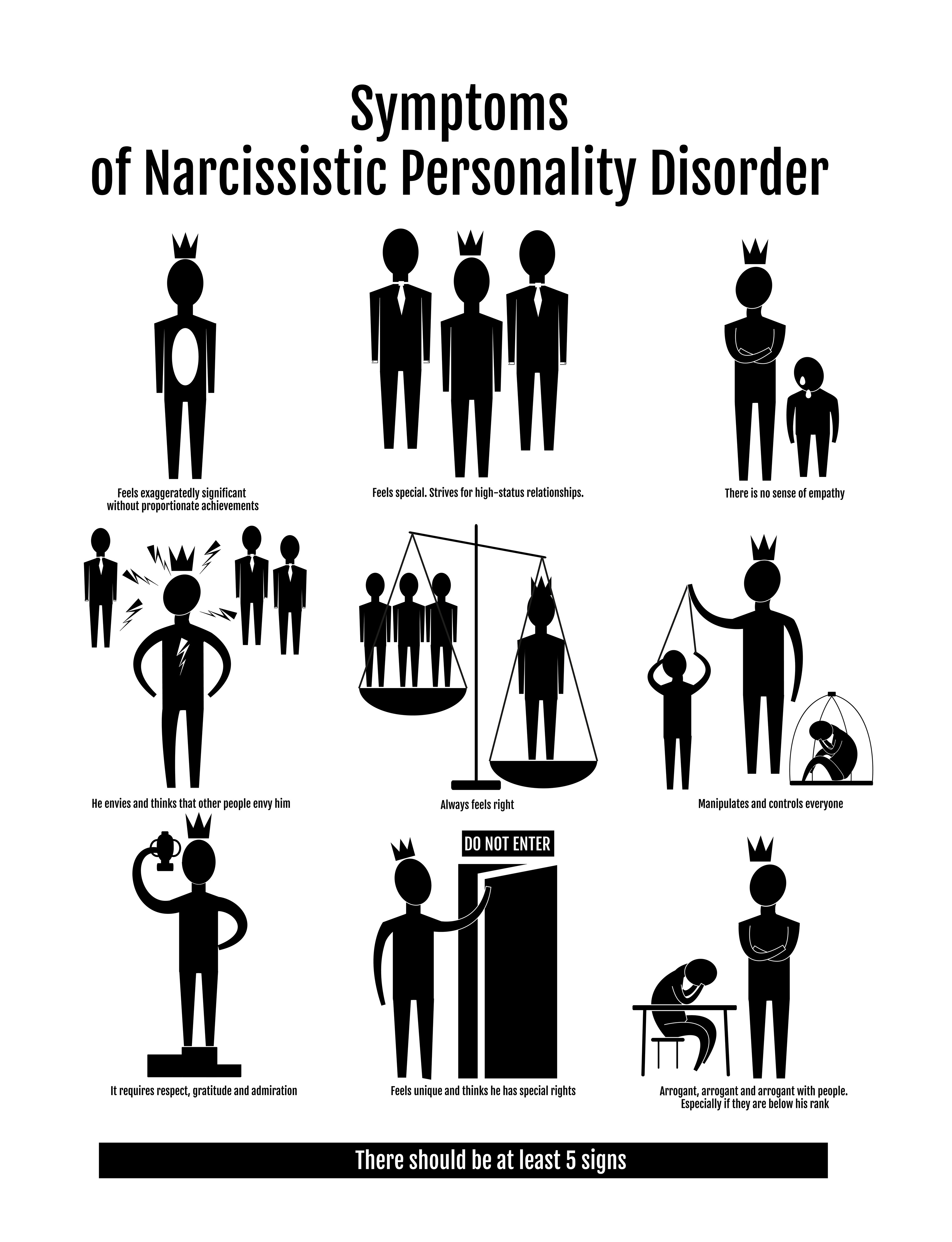As a BetterHelp affiliate, we receive compensation from BetterHelp if you purchase products or services through the links provided
Narcissistic individuals often resort to a manipulation tactic known as hoovering. This behavior involves the narcissist attempting to re-establish the relationship by leveraging the target’s emotional vulnerability. The narcissist’s primary goal is to regain control and exert power, often after a period of separation or following an argument where the victim distances.
Hoovering is named after the popular vacuum cleaner brand due to its analogy of the narcissist’s effort to “suck” the victim back into their grasp. It is essential to understand this phenomenon as it can cause significant emotional distress and confusion for those targeted. Individuals can protect themselves from further emotional abuse by recognizing the signs of hoovering and learning how to deal with it.
Key Takeaways
- Hoovering is a manipulation tactic used by narcissists to re-establish relationship control.
- Recognizing signs of hoovering can protect individuals from further emotional abuse.
- Building strategies to deal with hoovering narcissists can lead to healthier relationships.

Understanding Hoovering and Narcissism
Defining Hoovering
Hoovering is a manipulative tactic used by individuals with narcissistic tendencies to re-engage with a former partner or friend who has attempted to distance themselves. This behavior often involves the narcissist resorting to love-bombing, guilt-tripping, or threats to regain control and influence over the other person.
The term “hoovering” stems from the Hoover vacuum, symbolizing the narcissist’s attempt to “suck” the other person back into their toxic web of control. It is vital to recognize this behavior to protect oneself from potential emotional harm and enable the establishment of healthy boundaries.
Narcissistic Personality Disorder
Narcissistic Personality Disorder (NPD) is a mental health condition characterized by an inflated sense of self-importance, a deep need for admiration, and a lack of empathy for others. Individuals with NPD often exhibit arrogant or domineering behavior and struggle to maintain healthy relationships.
Some common traits of those with NPD include:
- A sense of entitlement
- Grandiosity
- Envy of others or belief that others are envious of them
- Manipulative behavior
- Lack of empathy
- Exploitation of others for personal gain
While hoovering is commonly associated with narcissists, it is important to note that not everyone who exhibits this behavior has NPD. Nevertheless, recognizing hoovering and understanding the implications of NPD can provide valuable insight for those affected by this type of manipulation.
Hoovering Techniques Used by Narcissists
Love Bombing and Idealization
Narcissists use love bombing and idealization as hoovering techniques to reel in their targets. They shower them with excessive attention, compliments, and affection, making their targets feel incredibly special. Narcissists often capitalize on their target’s emotional vulnerabilities to present themselves as the perfect partner or friend. This creates a powerful bond that becomes difficult for the target to break.
Manipulation and Gaslighting
Manipulation and gaslighting are common hoovering techniques employed by narcissists. They use these tactics to control their targets and maintain a position of power within the relationship. Gaslighting involves the narcissist denying or altering the target’s reality, leading them to question their memories and perceptions. This can cause the target to rely on the narcissist for validation and emotional support, further entangling them in the narcissist’s web of control.
Guilt, Blame, and Drama
Guilt, blame, and drama are additional hoovering techniques that narcissists use to manipulate their targets. They may create a sense of guilt in their targets, often by portraying themselves as the victim, to make the targets feel responsible for the narcissist’s well-being. Narcissists often shift the blame for their deficiencies or actions onto their targets, reinforcing the target’s feelings of guilt and dependency.
By creating drama, narcissists can maintain emotional control over their targets, making it difficult for the target to assert boundaries or remove themselves from the situation. This keeps the target emotionally invested in the relationship, ensuring that the narcissist maintains their power and control.
Recognizing Signs of Hoovering in Relationships
Communication Patterns
In relationships where hoovering is present, communication patterns can reveal signs of manipulation and control. Narcissists often use guilt-tripping, blame-shifting, and selective memory to distort the victim’s perception of reality. They may also engage in persistent communication, bombarding the target with texts, calls, and emails to regain control over them. These patterns can be exhausting and leave victims feeling isolated and confused.
Emotional Abuse
Emotional abuse is a critical aspect of hoovering in toxic relationships. Narcissists employ various tactics to manipulate their partner’s emotions and maintain power over them. Some common examples of emotional abuse include gaslighting (a form of psychological manipulation where the abuser causes the victim to doubt their perception of reality), baiting (provoking a negative emotional response to gain control), and playing the victim (using guilt and self-pity to elicit sympathy and manipulate others).
Control
Control is a central theme in relationships characterized by hoovering. Narcissists may attempt to regain power by demanding excessive attention, monitoring their partner’s activities, or imposing rigid rules and expectations. This controlling behavior can sometimes escalate to more severe forms of domestic violence and emotionally abusive tactics. Recognizing these signs in a toxic relationship is crucial for ensuring both emotional and physical safety.

Dealing with Hoovering Narcissists
Seeking Help and Support
Dealing with hoovering narcissists can be emotionally draining. It is important to seek help and support to cope with this behavior. A therapist can assist in understanding the narcissist’s control tactics and guide how to handle the situation. To find a therapist, research online or ask for recommendations from friends or family.
Additionally, joining support groups with individuals facing similar experiences can be beneficial. Sharing experiences and advice can help in dealing with a hoovering narcissist effectively.
Setting Boundaries
It is essential to set boundaries when dealing with a hoovering narcissist. Establish clear limits for communication and interaction, and make a conscious effort to enforce them. It may be challenging, but standing firm on these boundaries can help regain control over the situation and prevent the narcissist’s manipulation attempts.
- Communicate the boundaries clearly and assertively.
- Resist the urge to explain or justify the limits
- Stay firm and consistent in maintaining the boundaries
Cutting Off Contact
Sometimes, the best action may be to entirely cut off contact with the hoovering narcissist. This decision may be necessary for the person’s well-being and mental health.
- Block the narcissist on social media and messaging apps
- Change contact information if necessary
- Inform close friends and family of the decision to reduce potential contact
Cutting off contact can help end the cycle of manipulation and control that the hoovering narcissist possesses. While it may be difficult, prioritizing mental health and well-being should be the primary concern.
Protecting Yourself from Narcissistic Abuse
Narcissistic abuse can take many forms, including emotional, verbal, and sometimes physical assault. Victims often struggle with self-esteem issues and a sense of powerlessness. Protecting oneself from such abuse is crucial for mental health and overall well-being.
Asserting Your Self-esteem and Boundaries
One effective way to protect against narcissistic abuse is by asserting one’s self-esteem and establishing clear boundaries. This includes practicing self-respect and empathy towards oneself. Victims can create a stronger defense against potential harm by valuing one’s feelings and needs.
- Recognize the signs: Be aware of the tactics narcissists often use, such as manipulation, guilt-tripping, and gaslighting.
- Establish boundaries: Communicate limits and assertively enforce them when needed.
- Do not tolerate disrespect: Refuse to engage in conversations or situations where one is treated with disrespect or contempt.
- Avoid self-blame: Remember that narcissistic abuse is not the victim’s fault; it results from the abuser’s lack of empathy and need for a narcissistic supply.
Engaging with Legal and Mental Health Resources
When dealing with narcissistic abuse, seeking legal and mental health resources can provide valuable support.
- Report incidents of abuse: If one experiences domestic abuse or assault, it is crucial to document and report these incidents to the authorities.
- Seek professional help: Engaging with therapists or support groups can aid in processing the experience and developing coping strategies.
- Gain knowledge: Educate oneself about narcissistic abuse and its effects on mental health to better understand and counter the abuse.
- Build a support network: Connect with others who have experienced similar situations for emotional support and advice.
By incorporating these strategies and resources, individuals can begin to reclaim their power and protect themselves from the damaging effects of narcissistic abuse.

Social Media and Hoovering Narcissists
Dealing with Stalking and Manipulation Online
Social media platforms have become a common battleground for hoovering narcissists. They use these platforms to reestablish contact with their targets, often by stalking their social media accounts. This stalking behavior allows them to gather information about the target’s current life, interests, and relationships, which they can use to manipulate and reinstate control.
Some narcissists employ the tactic known as “flying monkeys,” where they manipulate others to harass their targets on their behalf. This may involve spreading lies and misinformation about the target or making disparaging comments on social media posts to undermine the target’s credibility and reputation.
To protect oneself from online stalking and manipulation by hoovering narcissists, it is crucial to enforce strict boundaries on social media accounts. This may include limiting the visibility of posts to a select group of trusted friends, actively filtering out any unwelcome comments or messages, and avoiding engaging in conversations with potential flying monkeys.
Blocking and Reporting Malicious Behavior
In cases where hoovering narcissists become persistent and malicious, it is vital to take appropriate measures and promptly report their behavior to the relevant social media platform. This might include reporting and blocking their accounts, as well as reporting any flying monkeys they have enlisted to harass their targets.
For additional protection, it might be beneficial to collect and save any evidence of malicious behavior or online stalking. This could include screenshots of conversations, messages, and comments from the narcissist or their flying monkeys. This evidence can serve as the basis for reporting their behavior and potentially taking legal action if necessary.
It is essential to remain vigilant and proactive in recognizing and dealing with hoovering narcissists on social media. By setting boundaries, reporting malicious behavior, and being prepared to take further action where necessary, it is possible to mitigate the impacts of their online stalking and manipulation.

Frequently Asked Questions
After no contact, what next?
After implementing a no-contact rule with a narcissist, focusing on oneself is essential. Engaging in self-care, seeking therapy or support groups, and cultivating personal interests are helpful steps. Strengthening relationships with friends and family can also provide much-needed support.
What are indirect hoovering signs?
Indirect hoovering occurs when a narcissist attempts to reestablish contact through subtle means rather than direct communication. Signs of indirect hoovering may include sending messages through mutual acquaintances, suddenly showing up in places they know the target frequents, or social media activities such as liking or commenting on posts.
What are failed Hoover consequences?
When a Hoover attempt fails, the narcissist may experience frustration and anger. They may escalate their efforts or, in some cases, move on to another target. It’s essential to remain vigilant and enforce the no-contact rule, as narcissists can be unpredictable in their attempts to regain control.
Ignoring Hoover’s response?
Ignoring a Hoover attempt is crucial to maintaining boundaries with a narcissist. Responding to their attempts for contact may encourage further manipulation and control tactics. A sense of empowerment and control can be reclaimed over one’s life by remaining firm in the no-contact approach.
Hoovering examples?
Hoovering can take various forms, such as unexpected phone calls, text messages, or encounters in public places. Narcissists may also use emotional appeals, feigning remorse or declaring undying love. Additionally, hoovering can involve offering gifts or favors to entice the target into their sphere of influence.
Genuine or just hoovering?
It can be challenging to differentiate between genuine remorse and hoovering attempts. A key factor is whether the narcissist demonstrates consistent, long-term change in their behavior. Genuine remorse is typically accompanied by meaningful change, whereas hoovering is often a temporary ploy to regain control.
- 7 Ideas to Help You Relax and Unwind on a Family Vacation - April 27, 2025
- How Having Cybersecurity Protection Helps You Relax - April 25, 2025
- 8 Reasons Why Spending Time Outside Calms You Down - April 25, 2025
This site contains affiliate links to products. We will receive a commission for purchases made through these links.




